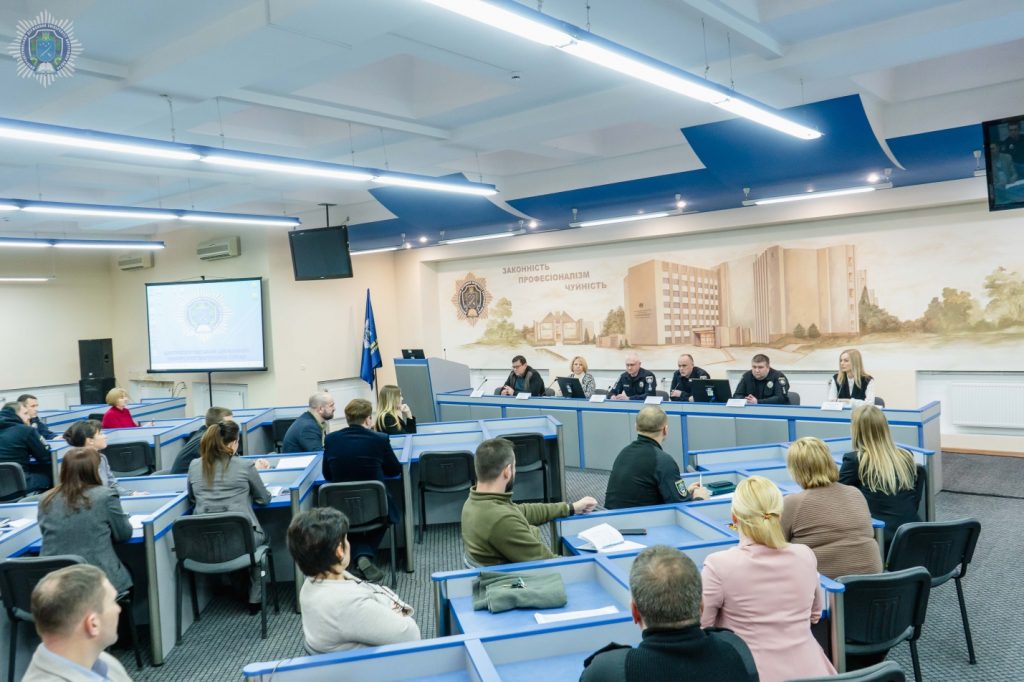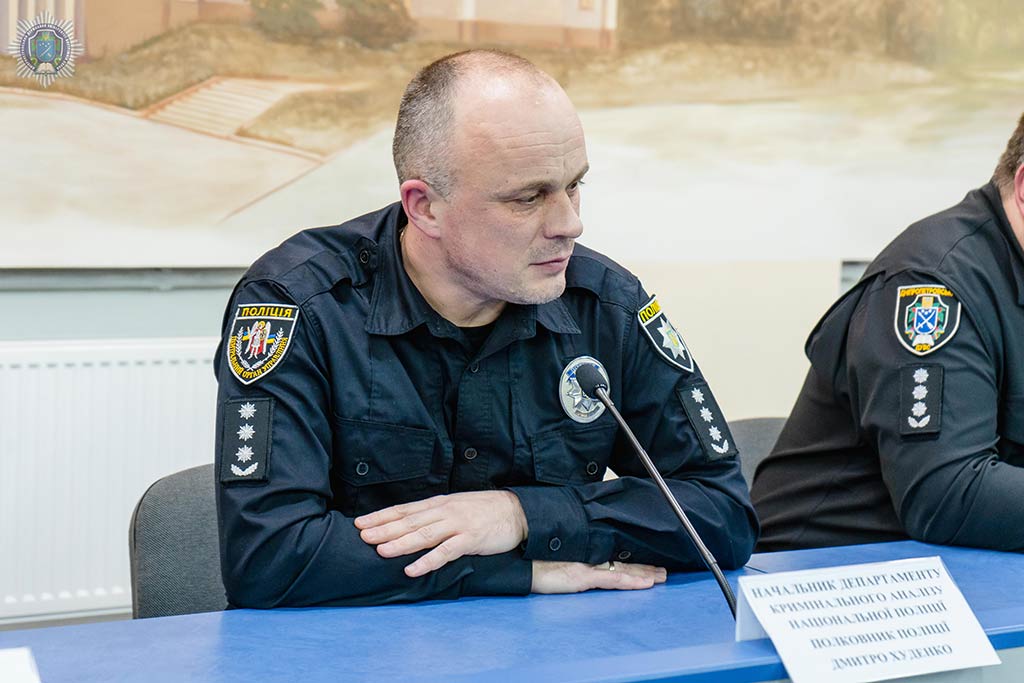A meeting of the academic council was held at Dnipropetrovsk State University of Internal Affairs. For the first time, the head of the Criminal Analysis Department of the National Police of Ukraine, police colonel Dmytro Khudenko, took part in the event.
The invited speaker was introduced by the rector, police colonel Andrii Fomenko. He noted that cooperation with the department within the framework of the concluded memorandum is really effective and has its results.
“Cooperation within the framework of the memorandum concluded with the Department of Criminal Analysis continues. We already have concrete developments and prospects for further cooperation,” added Andrii Fomenko.
Dmytro Khudenko, first of all, thanked for the reliable partnership of the structure with Dnipropetrovsk State University of Internal Affairs and noted that countering Russian aggression on all fronts continues.
The head of the department spoke in more detail about the activities of the unit in the conditions of a full-scale invasion of the Russian Federation into the territory of Ukraine.
Thus, among the key areas of the department’s work during martial law, Dmytro Khudenko singled out participation in the search for assets, prevention of child exploitation, analytical support of criminal proceedings, digitization of face recognition, video analytics and photo enhancement, etc.
In addition, the speaker took part in listening to current issues, and also presented the main forms of work of criminal analysis units in the situation centers of the National Police of Ukraine and the Main Directorate of the National Police, groups and joint headquarters, etc. This includes round-the-clock information-analytical and information-search support for law enforcement officers, and reference work, etc.
As part of the event, the head of the Department of Criminal Analysis expressed his gratitude to the team of Dnipropetrovsk State University of Internal Affairs for fruitful cooperation, and emphasized the prospects for its expansion. As the speaker emphasized, the contribution made by the scientists of DSUIA is almost the largest among all higher education institutions of the Ministry of Internal Affairs of Ukraine.
“Our areas of work require human resources, and these are first of all well-trained cadets who will be well versed in software and methods of criminal analysis. Such specialists are an urgent need today. I thank you for the effective cooperation,” noted Dmytro Khudenko.
It should be noted that the memorandum on cooperation with the Department of Criminal Analysis was concluded by Dnipropetrovsk State University of Internal Affairs, one of the first among the higher education institutions of the Ministry of Internal Affairs of Ukraine. Together with the educational institution, the educational visual guide “Equipment and armament of the armed forces of the Russian Federation and other forces of armed aggression against Ukraine (based on the results of OSINT research)” was organized. In particular, teachers and cadets of DSUIA joined the information and analytical support of the disclosure and investigation of war crimes (gathering information from OSINT). Another result of cooperation is the preparation of a bibliography, comparative tables of SOCTA – EUROPOL questionnaires regarding areas of criminal activity and documented organized criminal groups.
— 711








